Profile: Judah Folkman
- Posted 07.30.08
- NOVA scienceNOW
Dr. Judah Folkman, who died in 2008 at age 74, was a giant in the field of cancer research. He wasn't always considered a trailblazer, however. In the 1970s, when he first proposed that cancer depends critically on new blood vessel growth, or angiogenesis, other medical researchers ridiculed his ideas. But Folkman proved his theory of angiogenesis, and today it has led not just to cancer therapies but also to treatments for other diseases of abnormal blood vessel growth, such as macular degeneration.
Transcript
PROFILE: JUDAH FOLKMAN
PBS Airdate: July 30, 2008
NEIL DeGRASSE TYSON: Every once in a while in science, someone has an idea that changes everything. Judah Folkman, who died this past year, wanted to stop cancer in its tracks, but his quest ultimately went much further. In a past NOVA documentary, we called him a "cancer warrior."
Correspondent Chad Cohen reports on where Judah Folkman's battle has led.
CHAD COHEN (Correspondent): Judah Folkman often said, "Science takes you where you imagine it."
MARSHA A. MOSES (Children's Hospital Boston): Dr. Folkman's entire career was really testimony to this concept of the power of an idea. He not only had the intellect to be able to understand a problem, but he also had the courage to really focus on huge problems and huge questions whose answers would have a profound effect on people's lives.
CHAD COHEN: In 1967, Dr. Folkman was appointed the youngest chief of surgery in the history of Children's Hospital in Boston. His surgical skills were legendary, but it was cancer that captured his attention.
BRUCE ZETTER (Children's Hospital Boston): He would operate on children with tumors, and he noticed that the tumors were red. Now, other people noticed that tumors were red, and they thought they were inflamed, and what he realized was the red was blood vessels.
CHAD COHEN: While others dismissed those blood vessels, Dr. Folkman began a lifelong quest to understand them. By 1971, his wrote his ideas down in a now famous paper. In it, he described angiogenesis, which means new blood vessel growth.
He suggested that cancer cannot grow without blood vessels and that tumors secrete a "mystery factor," shown here in blue, that travels to the nearest blood vessel and stimulates angiogenesis. With a network of new blood vessels, the tumor gets the nourishment it needs to grow.
BRUCE ZETTER: Then he said if you could eliminate the blood vessels, you would shrink the tumor. It was a revolutionary idea because the notion had been that the only thing that mattered was the tumor cells. And now here's someone saying, we can start to treat a tumor by targeting a whole different cell type.
CHAD COHEN: Treating cancer by stopping blood vessel growth was a revolutionary idea. Unfortunately, few colleagues believed him.
JUDAH FOLKMAN (2001 interview): One very distinguished pathologist said "Angiogenesis is just inflammation. These are inflammatory products, which means they're non-specific dirt." And he said, "He's working on dirt."
CHAD COHEN: To quiet his critics, he and a colleague devised an ingenious experiment to prove that tumors do secrete a factor that recruits new blood vessels. They used a rabbit cornea. It's a crystal clear dome that covers the eye, and blood vessels never grow there.
They sandwiched a tiny piece of tumor in the middle of the cornea. After a couple of days, new blood vessels emerged. They crawled up the cornea straight toward the tumor. Within two weeks, the tumor grew 16,000 times its original size. When they removed the tumor, the blood vessels regressed and disappeared.
But even this didn't convince the critics.
BRUCE ZETTER: If you say, "I found angiogenesis," your colleagues are going to say, "What's the mechanism?" You say, "There are factors," they're going to say, "Show us the factors."
CHAD COHEN: It took 10 long years to find the proof he needed. Finally, in 1984, Dr. Folkman's team isolated a single protein that caused tumors to recruit their own blood supply. It was a major turning point.
JUDAH FOLKMAN (File Footage): Every once in a while, there is a tremendous finding, and you realize, for the first time in your life, that you know something that hour or that day that nobody else in history has ever known. And you can understand something about how nature works. That doesn't happen to many scientists. And if it does it's a blessing, and if it happens more than twice it's a miracle. And when it happens it's a very big high.
CHAD COHEN: But Dr. Folkman's work was not done.
BRUCE ZETTER: He wasn't going to be satisfied understanding angiogenesis. He had to take angiogenesis to a treatment for cancer.
CHAD COHEN: The Holy Grail was now to find a molecule or drug that turned angiogenesis off, in essence, treating cancer by cutting off its food supply. They looked everywhere, in fungus, in existing drugs and in the body itself. Slowly but surely, anti-angiogenesis drugs were discovered, throughout the 1990s, in laboratories around the world. While it's still too soon to evaluate the clinical success of these first generation drugs, today the field of angiogenesis is growing rapidly.
But the man who pioneered it is gone. Early this year, en route to a scientific conference, Dr. Folkman's heart suddenly stopped. He died at the age of 74.
MARSHA MOSES: I think there is absolutely no overstating the magnitude of the loss. He was a visionary. He was a pioneer who established the field of angiogenesis research and educated the next generation of scientists. He was a committed mentor. He was a dedicated and very humble role model.
CHAD COHEN: Dr. Folkman left his colleagues a precious gift. Now protected under Plexiglas(R), it's a hand written list of his final ideas and a peek into the future of angiogenesis research, which now extends well beyond cancer.
Abnormal blood vessels turn out to be an underlying factor in more than 60 diseases, including an eye disease that afflicts millions of people around the world. Gloria Cohen is one of them. A couple of years ago, she was diagnosed with a devastating form of macular degeneration and was rapidly going blind.
GLORIA HANSON COHEN (Macular Degeneration Patient): I was absolutely shocked and dismayed, and all of the things that I couldn't do anymore came into my mind...thought about the driving, and I need to drive. I'm one that tries not to be hysterical, but I guess I couldn't hide it.
CHAD COHEN: In Gloria's form of macular degeneration, abnormal blood vessels start growing in the back of the eye. They leak blood and fluid, which damages the retina. No effective treatment was available, until Joan Miller and a team working with Dr. Folkman found a surprising connection with cancer. A protein, called VEGF, that stimulates blood vessels in many cancers also turned out to be active in macular degeneration.
It was a stroke of luck, because a VEGF blocker, already in development for cancer, was adapted for use in the eye. After three injections, the blood vessels in Gloria's left eye not only disappeared, but much of the damage was reversed.
Today, Gloria is driving with confidence and 20/20 vision. But only about a third of patients are seeing results as dramatic as Gloria's. To help the rest, early detection is key.
JOAN W. MILLER (Massachusetts Eye and Ear Infirmary): We're hoping to be able to do a blood or a urine test where you measure a marker that suggests that abnormal blood vessels are going to grow, and you can come in with a treatment and stop them before they cause any damage or any vision loss in a patient.
CHAD COHEN: Detecting abnormal blood vessel growth in its earliest stages was at the heart of Dr. Folkman's ultimate goal, to reduce cancer from a devastating diagnosis to a manageable disease. And that's what his colleague, Marsha Moses, is working on now. She's looking for early warning signs that cancer is growing.
Inside her laboratory freezer are 8,000 samples of urine, some from healthy donors, the rest from cancer patients. They're putting the urine through a series of tests. They're not looking for cancer cells, but for proteins associated with the onset of abnormal blood vessel growth.
If they are in these drops of urine, the liquid in the well will turn bright yellow.
MARSHA MOSES: The darker yellow ones either have cancer or are at risk of developing cancer. And the cancer could range from early disease to metastatic disease.
CHAD COHEN: If large-scale studies now underway confirm the lab results, this work may lead to a simple urine test that could detect cancer long before current methods, just as Dr. Folkman envisioned many years ago.
JUDAH FOLKMAN (File Footage): It's very possible, in the future we'll have the diagnostic test that says, "You're showing up with cancer." And you'll get a mild angiogenesis inhibitor for 10 years, until the test goes down.
MARSHA MOSES: I think the path is very clear. We've had the benefit and the inspiration of working with Dr. Folkman. And, I just think we have to have the intellectual courage, as he did, to carry out that legacy. And we're going to work very hard to do that.
Credits
Profile: Judah Folkman
- Edited by
- Stephanie Munroe
- Produced and Directed by
- Nancy Linde
NOVA scienceNOW
- Executive Producer
- Samuel Fine
- Executive Editor
- Neil deGrasse Tyson
- Senior Series Producer
- Vincent Liota
- Supervising Producers
- Stephen Sweigart
Joey David - Editorial Producer
- Julia Cort
- Development Producer
- Vinita Mehta
- Senior Editor and Colorist
- David Chmura
- Online Editor
- Laura Raimondo
- Series Production Assistant
- Fran Laks
- Assistant Editors
- Susan Perla
Tung-Jen (Sunny) Chiang - Compositors
- Brian
Edgerton
Yunsik Noh - Music
- Rob Morsberger
- NOVA scienceNOW Series Animation
- Edgeworx
- Additional Editing For Mammoth Mystery Segment
- Gary Hochman
- Additional Producing for Phoenix Mars Lander Segment
- Joseph McMaster
- Field Producer For Phoenix Mars Lander Segment
- Anna Lee Strachan
- Associate Producers
- Fran
Laks
Jonathan Loewald
Molly Longstreth
Alison Snyder - Camera
- John Baynard
Brian Dowley
Joe Friedman
Tim Gibbons
Terry Hatch
Max Miller
Brian Seifferlein - Sound Recordists
- John Cameron
Michael Cottrell
Bruce Engler
Tyler Lang
James M. Lenertz
Charlie Macarone
John O'Connor - Sound Mix
- David Chmura
- Animation
- Scott
Beachler
Thomas Floyd
Anthony Kraus
Sputnik Animation
James Laplante
3FX - Assistant Editors for Phoenix Mars Lander segment
- Evelyn
Carrigan
Tyler H. Walk - Production Assistant
- Elizabeth Stachow
- Three dimensional brain animation
- Courtesy Dr. Arthur W. Toga, Laboratory of Neuro Imaging at UCLA
- Archival Material
- BBC Gallery
JPL-Caltech
The Alan Mason Chesney Medical Archives of The Johns Hopkins Medical Institutions
NASA
Plimpton Collection, Rare Book and Manuscript Library, Columbia University
Sveriges Television
Texas A&M University
University of Arizona
University of Nebraska State Museum - Special Thanks
- John Beck
Children's Hospital Boston
Donald Edwards
Sara Hammond
Massachusetts Eye and Ear Infirmary
Trailside Museum - Neil deGrasse Tyson
- is director of the Hayden Planetarium in the Rose Center for Earth and Space at the American Museum of Natural History.
- NOVA scienceNOW Consortium Stations
- Nebraska
Educational Telecommunications, NET
Public Broadcasting for Northern California, KQED
Twin Cities Public Television, TPT
Wisconsin Public Television, WPT - NOVA Series Graphics
- yU + co.
- NOVA Theme Music
- Walter Werzowa
John Luker
Musikvergnuegen, Inc. - Additional NOVA Theme Music
- Ray Loring
Rob Morsberger - Post Production Online Editor
- Spencer Gentry
- Closed Captioning
- The Caption Center
- Publicity
- Carole McFall
Eileen Campion
Lindsay de la Rigaudiere
Victoria Louie
Kate Becker - Senior Researcher
- Gaia Remerowski
- Production Coordinator
- Linda Callahan
- Paralegals
- Raphael Nemes
Sarah Erlandson - Talent Relations
- Scott Kardel, Esq.
Janice Flood - Legal Counsel
- Susan Rosen
- Post Production Assistant
- Darcy Forlenza
- Associate Producer, Post Production
- Patrick Carey
- Post Production Supervisor
- Regina O'Toole
- Post Production Editors
- Rebecca Nieto
Alex Kreuter - Post Production Manager
- Nathan Gunner
- Compliance Manager
- Linzy Emery
- Development Producer
- Pamela Rosenstein
- Business Manager
- Joseph P. Tracy
- Senior Producer and Project Director
- Lisa Mirowitz
- Coordinating Producer
- Laurie Cahalane
- Senior Science Editor
- Evan Hadingham
- Senior Series Producer
- Melanie Wallace
- Managing Director
- Alan Ritsko
- Senior Executive Producer
- Paula S. Apsell
This material is based upon work supported by the National Science Foundation under Grant No. 0638931. Any opinions, findings, and conclusions or recommendations expressed in this material are those of the author(s) and do not necessarily reflect the views of the National Science Foundation.
NOVA scienceNOW is a trademark of the WGBH Educational Foundation
NOVA scienceNOW is produced for WGBH/Boston by NOVA
© 2008 WGBH Educational Foundation
All rights reserved
- Image credit: (Judah Folkman) Courtesy Children's Hospital Boston
Participants
- Chad Cohen
- Correspondent
- Judah Folkman
- www.childrenshospital.org/cfapps/research/data_admin/Site2580/mainpageS2580P0.html
- Gloria Hanson Cohen
- Joan Miller
- Massachusetts Eye & Ear Infirmary
- Marsha Moses
- Children's Hospital Boston www.childrenshospital.org/cfapps/research/data_admin/Site102/mainpageS102P0.html
- Bruce Zetter
- Children's Hospital Boston www.childrenshospital.org/cfapps/research/data_admin/Site104/mainpageS104P0.html
Related Links
-
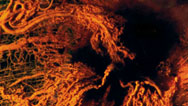
Angiogenesis Explained
See how cancerous tumors recruit their own blood supply in order to grow and how this process might be stopped.
-
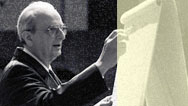
Judah Folkman Interview Excerpts
Renowned cancer researcher Judah Folkman talks about riding the "fine line between persistence and obstinacy," and more.
-
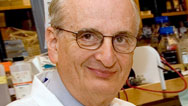
Cancer Warrior Judah Folkman
In this extensive interview, Judah Folkman reflects on his cancer research, his hopes for future treatments, and more.
-
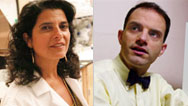
Judah Folkman: Expert Q&A
Two of Folkman's colleagues at Children's Hospital Boston answer questions about treatments for cancer and eye disease.
-
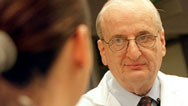
Asking Big Questions
Cancer researcher Judah Folkman describes an unforgettable lesson he learned from a high school chemistry teacher.
-
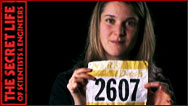
The Secret Life of Eva Vertes
Eva Vertes describes the connections between medical research and her passion for running.



